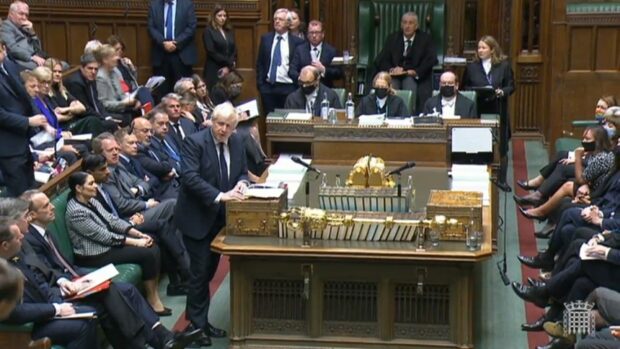The prime minister has insisted a major plan to develop carbon capture technology in the north-east “still has strong potential” despite the UK Government choosing to reject the project.
Boris Johnson’s government was accused of delivering “yet another Tory broken promise” in its decision to reject the so-called Scottish Cluster.
Instead of the Acorn project at St Fergus, near Peterhead, UK energy minister Greg Hands, who visited the north-east last week, selected two schemes in the north of England to go forward in the first round of bids.
‘Purely political’
SNP Westminster leader Ian Blackford said the move was a “devastating blow” with just 11 days to go until world leaders gather in Glasgow for the COP26 climate conference.
Energy tycoon Sir Ian Wood is among those calling on UK ministers to “reconsider their decision” to omit the bid from the first phase.
Mr Blackford told the prime minister: “Today’s Press and Journal has said there is no valid reason and no acceptable excuse for this decision and have called for a U-turn on this colossal mistake immediately.
“We know this decision wasn’t made on technical and logical grounds.
“This devastating decision was purely political.
“Scotland’s north-east was promised this investment in 2014, it is a promise that has been broken time and time again.”
In response, the prime minister said he knows there was “disappointment” about the Acorn bid in Aberdeenshire and “that’s why it has been selected as a reserve cluster”.
He added: “The Acorn project still has strong potential and that’s why it’s been selected as a reserve cluster and he (Ian Blackford) should keep hope alive rather than spreading gloom in the way he does.”
A previous BP-led carbon capture and storage scheme at Peterhead was abandoned in 2007, then a coal-based project at Longannet in Fife collapsed in 2011, followed by the withdrawal of funding earmarked for a Shell/SSE-backed initiative at Peterhead in 2015.
In his statement, Mr Hands, said that on carbon capture, utilisation and storage (CCUS), there was “potential to expand our commitment yet further in advance of 2030”.
